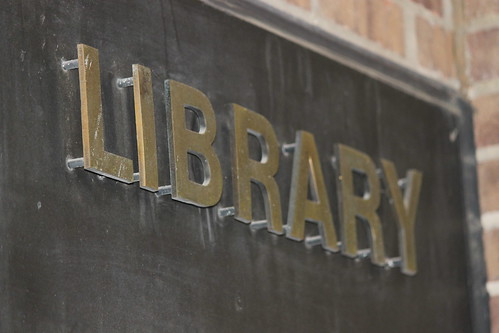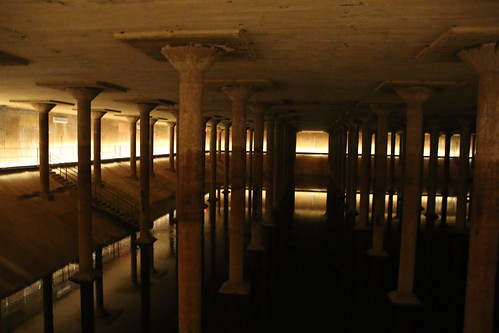Charleston Conference
I have a number of sessions at the fantastic Charleston Conference this November.History Has Its Eyes on You: Lighthouses and Libraries Weathering Storms of Change - or is being the Public Good Good Enough?
This is an adaptation of my keynote at the Great Lakes Resource Sharing Conference last June in Chicago.
For hundreds of years, the United States has been protected by two venerable institutions. Lighthouses have served as a beacon on the shores to guide ships carrying both people and cargo to a safe harbor. Libraries have served as a beacon to guide people to books, magazines, journals, reference works, recordings and other media for enlightenment, education and enjoyment. Both lighthouses and libraries have enjoyed their status as 'public goods' with little question in regards to the rationale for funding and support. Since most ships have navigation systems and we have all library items on our smartphone (we do right???), questions are being asked about the future of these two beacons.
Change impacting both lighthouses and libraries are remarkably similar. With automation and electrification, lighthouses transitioned to low-maintenance entities and many have been turned into historical museums across the country. Libraries have seen tremendous changes as collections became increasingly electronic over the past two years. The value proposition libraries play on campuses has changed - along with their ability to support community members in the present and many years in the future. While 'what's past is prologue' helps set the scene, the reality laid before both is to adapt or 'wither away on the vine.'
In this presentation, we will look at the parallel paths taken by both lighthouses and libraries in fulfilling their self-mandated missions. To that end, we will look more closely at the meaning of a 'public good' and the demands that librarians have in supporting both current use and future use of collections as we balance between community needs and aspirations. How librarians (and lighthouse keepers) face the coming storm will have a tremendous impact on future generations of our community members.
What's Past Is Possible: Opportunities and Perspectives for Library Alumni Resources
Presentation with Jo-Anne Hogan (MLIS, Publisher, Business for ProQuest)
When considering the theme "What's Past is Prologue," there might not be a better application than to think of former students at our colleges and universities. As they venture off into the role of campus alumni, their information needs become complicated when they lose access to the wealth of electronic resources that are available at most campuses. Having resources at hand while a student is wonderful, but the grim reality of having little available to them upon graduation can be a bit of a let down. A growing number of colleges and universities are offering alumni a suite of electronic resources that are either bundled as part of their existing package, negotiated or purchased separately. The value to the vendor may be as an additional revenue line or exposure to a larger population. This might be especially true in business where the need for information and news resources is ongoing. The value to the library may be as a connection to a mission of lifelong learning that can partner with other aspects of the school. Even in a time of tight resource budgets, this can be a good investment by the library.
Kresge Library Services (Michigan) and ProQuest are no strangers to alumni resources. Kresge Library Services (of the Ross School of Business) has long been providing resources to alumni and is featured as an key lifelong learning element of the school. ProQuest has provided a number of alumni packages to libraries over the years as well. In this presentation, we will hear from a library and a vendor in how they approach alumni researchers, resources and what opportunities they provide to these organizations.
Critical business collections: Examining key issues using a social justice lens
Panel discussion with:
- Heather Howard, Assistant Professor of Library Science & Business Information Specialist, Parrish Library of Management & Economics, Purdue University Libraries
- Katherine Macy, Business Librarian, IUPUI
- Corey Seeman, Director, Kresge Library Services, University of Michigan
- Alyson Vaalar, Business Librarian, Texas A&M
All academic librarians perform a balancing act between the needs of patrons, licensing restrictions, and the missions of our libraries. As part of the work to develop our campus collections, academic business librarians work with both schools and commercial vendors to provide resources that our business students and faculty require. Business publishers charge academic customers pennies on the dollar for access, but are likely to seek protections for their intellectual content by placing usage restrictions that run counter to what librarians would prefer. This can cause difficulties for librarians in serving their unique populations. This also can run counter to the central principals of “Critical Librarianship”, which is based on a foundation of social justice, the belief that everyone deserves equal opportunities and basic economic, political, and social rights. Balancing the needs of the publishers and business school communities with the principals of critical librarianship is a great challenge for everyone who serves these communities. Business librarians from across the US will explore ways in which collections and critical librarianship collide. Topics to be covered include critical cataloging, the effects of database licenses on the intersection of theoretical academic work and practical business activities, challenges faced by public institutions supporting community entrepreneurs, and how the integration of critical pedagogy with information and data literacies can bring awareness to problems within current collections such as access to information, issues in data collection, and information creation. Through discussion, we hope to provide insight to ways in which libraries, as intermediaries between patrons and vendors, can help address these difficult problems.
November 21-22, 2017
Indian Institute of Management - Ahmedabad, India
Conference Theme: "Entrepreneurship, Innovation and Leadership: The Evolving Role of Business Libraries"
I am super excited to be traveling to India this fall for the 3rd Global Conference on Emerging Trends for Business Librarianship. Could not pass up the opportunity to explore S. R. Ranganathan's Laws, especially as they might be applied to the libraries of the future. This will (hopefully) be worked on for publication in 2018.
Save the Time of the Reader: Using S. R. Ranganathan's Fourth Law to Build the Business Library of the Future
S. R. Ranganathan's monumental 1931 work The Five Laws of Library Science remains one of the most powerful and inspirational works in our field. Even though he might not have envisioned the digital library of today, his work remains a beacon that guides librarians into a new world order. The fourth law, "save the time of the reader," captures the image and primary goal of the library of the future. This stands as a critical principle for the future of libraries, especially those supporting business.
Ranganathan's Fourth Law is one that often focuses on technical services, especially in the context of creating catalogs and the organization of information. Through these resources, we create users who are more self-sufficient in finding what they need. Without these resources, our users wouldn't be able find any books or articles. While the creation of self-service tools like catalogs are a significant investment that libraries make to save the time of our users, they are by no means perfect. We organize information the way that we understand it. The self-service library user is successful when he or she searches search for books or data in the same descriptive conventions that libraries use. But does it work for business researchers, especially for those conducting entrepreneurial research? Does their visioning of information align with the way that we structure it in our physical and digital libraries? Often, the answer is no.
A better way to save the time of the reader is through direct support and assistance. Business researchers live with the appearance of abundance of information, yet become frustrated when their desired items appear elusive. This is especially true for entrepreneurial researchers who are working in new and narrow markets that are not as well defined or described. This presentation will explore S.R. Ranganathan's fourth law re-envisioned to focus on public or reference services to meet the needs of the business and entrepreneurial researcher. This presentation will showcase how business libraries can save the time of our researchers by being service-oriented and responsive to their research needs. Through a service-orientation, we can better understand our users and, in turn, help them find the information and works they need. Through this service-orientation, we can build the library of the future that business researchers and entrepreneurs need.

